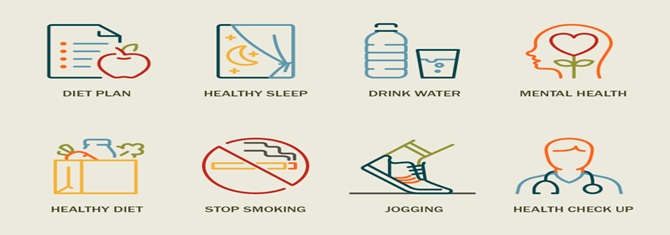test article creation 6
Lifestyle refers to the way a person lives, including habits, interests, diet, exercise, work-life balance, and social interactions. It reflects personal values and cultural background. A healthy lifestyle supports both physical and mental well-being, helping individuals feel balanced, energized, and fulfilled in daily life.

Main Lifestyle Types
- Healthy Lifestyle
Focuses on nutrition, exercise, mental well-being, and preventive health habits.
- Sedentary Lifestyle
Characterized by little physical activity, often due to office jobs or screen-based leisure.
- Minimalist Lifestyle
Emphasizes simplicity, reducing possessions, and focusing on meaningful experiences.
- Digital Nomad Lifestyle
Involves working remotely while traveling, relying on technology and flexible routines.
- Eco-Friendly (Sustainable) Lifestyle
Centers on reducing environmental impact through recycling, conscious consumption, and green habits.
- Luxury Lifestyle
Associated with wealth, high-end products, exclusive experiences, and status symbols.
- Bohemian (Boho) Lifestyle
Creative, artistic, unconventional, often focused on freedom, expression, and travel.
- Spiritual or Mindful Lifestyle
Involves meditation, self-awareness, and practices like yoga or mindfulness for inner peace.
- Workaholic Lifestyle
Prioritizes career and productivity, often at the expense of leisure or personal life.
- Family-Oriented Lifestyle
Focuses on family values, parenting, and creating a stable home environment.
- Adventurous Lifestyle
Includes frequent travel, outdoor activities, and seeking new and exciting experiences.
- Urban Lifestyle
Fast-paced, city-based living with access to modern amenities, nightlife, and networking.
Nutrition – The Foundation of Wellness
What you eat has a powerful impact on your energy, immunity, mood, and overall health. A healthy diet doesn’t have to be restrictive—it should be varied, colorful, and rich in whole, natural foods.
Simple tips to start right:
- Choose whole foods over processed ones.
- Drink plenty of water throughout the day.
- Cut back on added sugars and trans fats.
- Include vegetables in every meal.
- Don’t skip meals—especially breakfast.
Movement – Your Daily Energy Boost
You don’t have to be a professional athlete to be active. Regular movement—whether it’s walking, dancing, stretching, or going to the gym—keeps your body strong, your mind sharp, and your stress levels low.
Ideas to get moving:
- Take the stairs instead of the elevator.
- Go for a 20-minute walk daily.
- Try yoga, swimming, or a home workout video.
- Find a sport or activity you enjoy—consistency is more important than intensity.
Sleep – The Silent Superpower
Good sleep is essential, yet often overlooked. It restores your body, boosts your mood, and helps you think clearly. Aim for 7–9 hours of quality sleep each night.
Better sleep tips:
- Maintain a regular sleep schedule.
- Avoid screens before bedtime.
- Create a calm, dark, and cool sleep environment.
- Reduce caffeine intake in the afternoon.
Mental Wellness – Nurturing the Mind
A healthy lifestyle isn’t just physical. Taking care of your mental and emotional health is just as important. Stress, anxiety, and burnout can harm your body over time.
- Ways to support mental well-being:
- Practice mindfulness or meditation.
- Take breaks and rest when needed.
- Surround yourself with positive people.
- Don’t hesitate to seek help or talk to someone.
Consistency Over Perfection
One of the biggest mistakes people make when starting a healthy lifestyle is trying to change everything at once. It’s more sustainable to focus on small, manageable changes that you can stick to over time. Progress, not perfection, is what leads to lasting results.
Final Thoughts
Starting a healthy life is a journey, not a destination. It begins with awareness, followed by small daily actions that build new habits. Whether it’s choosing water over soda, walking instead of driving short distances, or taking five minutes to breathe deeply—every choice counts. Start where you are, use what you have, and do what you can. Your future self will thank you.